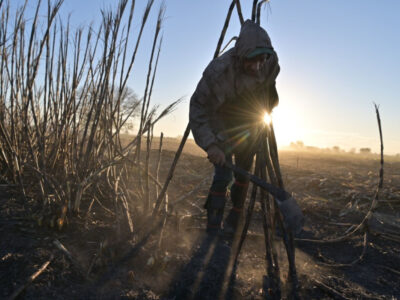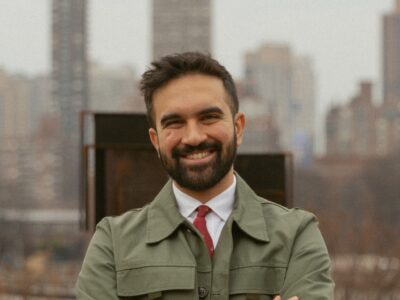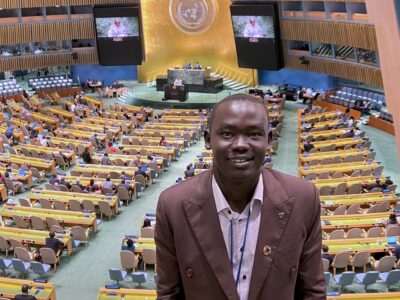
Climate change threatens to destroy invaluable heritage sites and traditions in marginalized countries — but empowering local people is key to adaptation.
These are the conclusions of a paper published today in Nature Climate Change. The authors include researchers from the University of East Anglia, the University of Cape Town, and Columbia University, as well as other institutions.
“The preservation of heritage is a core human right, the right to cultural self-determination and autonomy,” said co-author Ben Orlove, an anthropologist at the Columbia Climate School. “We know that sea level rise has led to increased flooding in Venice, a historical treasure in Europe; it also impacts other, less well-studied coastal sites in the Caribbean and the Pacific, as well as in Africa and Asia.”

Heritage under threat
Traditional ways of life in Amazonia and the Pacific Island States, ancient Roman coastal cities such as Tipasa in Algeria, the iconic earthen architecture of Mali — including the masonic skills passed down through generations to maintain it — all face the threat of loss and damage from climate change because heritage research and funding haven’t historically been prioritized in these areas.
“Climate change poses a threat to heritage globally,” said lead researcher Joanne Clarke of the University of East Anglia. “But it is particularly acute in low- and middle-income countries, where vulnerability to climate change is generally high, with climate hazards such as sea-level rise, flooding and wildfires.” She added that these changes are contributing to the loss of local and Indigenous knowledge that is crucial to safeguarding other forms of heritage.
Heritage includes inherited traditions, monuments, objects, places and culture, as well as contemporary activities, knowledge, meanings and behaviors that are drawn from them, say the authors.
Whose heritage gets saved?
Climate change is an increasing focus of heritage research across Europe and North America, including identification of site-specific adaptation options for heritage preservation.
In contrast, climate change research in low- and middle-income countries is limited by systemic gaps in access to funding and its associated knowledge generation, which act to reinforce historical colonial structures deeply embedded in heritage management.

Climate adaptation funding for many vulnerable low- and middle-income countries depends heavily on international aid organizations that are commonly located in high-income countries. This inevitably leads to an unequal balance in the types of heritage earmarked for research or development, the authors note, with a bias toward heritage valued by those living in high-income countries while commonly side-lining pre-colonial heritage.
For example, belief systems or other forms of intangible heritage historically haven’t been deemed as valuable to Western researchers and funders as places or things, such as temples or statues.
“Euro-American centricity, dispossession, racism, and ongoing power imbalances have perpetuated a narrow view, mirroring colonial legacies that continue to shape priorities for climate research questions, funding, and outputs globally,” said Nicholas Simpson of the University of Cape Town, who also led on the research. “We need to commit to actively undoing those systems and ways of thinking through transformations to agenda-setting, funding, training, access to data and governance.”
Decolonizing heritage research
Locally led research and more equitable research funding are needed to address the true potential loss and damage to heritage from climate change, said the researchers.
They suggest that research agendas and funding, along with the policy agendas to which they are linked, should be less centered on the high-income countries. Priorities for research and practice should be informed by Indigenous and local communities and should integrate their values, preferences and judgements with climate change risk and vulnerability assessments.
These measures and others will help to make heritage research more inclusive, equitable and diverse, while addressing systemic inequalities and biases and strengthening global adaptation to climate changes, say the researchers.

Overcoming the blind spots associated with colonial research legacies will not only help to preserve important cultural sites and traditions in low- and middle-income countries, but may be beneficial to high-income countries as well, according to the paper.
“Heritage offers solutions to climate change,” said Orlove. He gives an example of Indigenous stone terracing techniques in the Philippines that are becoming more widespread in order to protect against landslides, which are exacerbated as climate change leads to more frequent and intense typhoons.
“Historic sites offer testimony of the responses of earlier societies to climate impacts, which can serve as models of adaptation,” said Orlove.
Adapted from a press release by the University of East Anglia




The main problem in circumstances like these is in persuading people living in impoverishment that preserving these local sites of absolute historical value and cultural identity comes anywhere close to the importance of feeding their family and putting a roof over their heads. Unfortunately, until that problem has been resolved, I fear they may see it as a concern that doesn’t have a place in their lives, even though I’m sure they would express an interest in protecting such local and national sites, were they lucky enough to be in a position to be able to. As things stand, nothing can beat education or local dissemination of the facts of the issue done using a style & colloquial idiom that will appeal to the locals who are the natural custodians of their own heritage. It’s a double-edged sword. Outsiders coming in to point out the importance of preservation of their historical sites and landmarks could echo to some of colonialism, even though it’s with the best of intentions. A difficulty that needs to be overcome for the greater good, I believe. Let’s be optimisticwhile always remaining proactive.